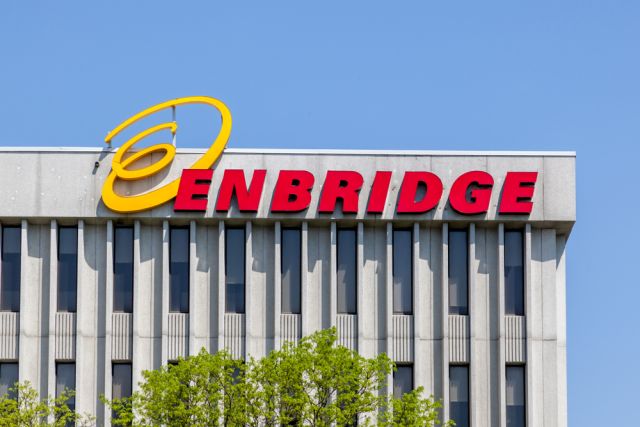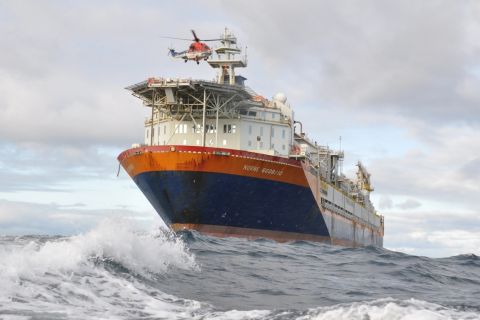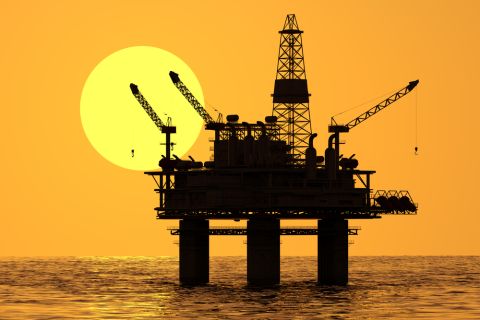
Enbridge is also facing a challenge on a segment of the line in Wisconsin. (Source: Shutterstock)
Midstream players are calling for judicial reforms following the sector’s latest blow to pipeline development.
Enbridge’s legal battle over its Line 5 Pipeline system suffered a setback on June 17 when a U.S. appeals court sent the case back to the Michigan justice system.
It’s the latest step in a legal battle going back to 2018. The long process shows similarities to courthouse fights over projects like the Dakota Access Pipeline and, more recently, the Mountain Valley Pipeline, said a spokesperson for Arbo, an analytical firm that follows infrastructure permitting.
“The opposition play on repeat here is to litigate all the permits you possibly can,” Carey Perlozzo, vice president for marketing and customer operations at Arbo. “This is why we desperately need judicial reform with some kind of statute of limitations on permitting challenges, to be included in permitting reform that will be effective in supporting pipeline infra development.”
The issue in Michigan is the pipeline’s path under the Straits of Mackinac, a narrow passage of water that separates lakes Michigan and Huron. Enbridge seeks to improve the structural integrity of the aging system by enclosing the line in a concrete tunnel.
Michigan’s attorney general filed a lawsuit against Enbridge in 2019, demanding that the company stop operating Line 5 under the Straits of Mackinac in the Great Lakes. Two years later, Enbridge sought to remove the case from Michigan’s jurisdiction to a federal court.
Then on June 17, the 6th U.S. Circuit Court of Appeals in Cincinnati ruled that Enbridge waited too long to ask for a jurisdictional ruling and sent the case back to be tried in Michigan.
"We hold that Enbridge failed to timely remove this case to federal court under 28 U.S.C. § 1446(b), and there are no equitable exceptions to the statute’s deadlines for removal," wrote Appeals Judge Richard Griffin.
In a statement, Enbridge spokesman Ryan Duffy said the company was disappointed by the decision. Enbridge is confident a separate case the company filed to the federal court challenging the Michigan’s attempt to close Line 5 will overrule any forthcoming ruling from the state.
Line 5 consists of several pipes with a capacity of up to 540,000 bbl/d of NGLs, including propane for home heating, and crude from Canada to U.S. hubs and Eastern Canada.
In Michigan, Gov. Gretchen Whitmer and Attorney General Dana Nessel both campaigned on promises to close the line when they ran for and won office in 2018.
“Line 5 is no safer than it was when I first sued Enbridge in 2019. It is still old, dangerous and worsening,” Nessel said in a statement after the June 17 ruling. “And I am still committed to doing everything in my power to shut down its passage through the Straits.”
Enbridge is also facing a challenge on a segment of the line in Wisconsin. The Bad River Band of the Lake Superior Chippewa filed a lawsuit against Enbridge in federal court, demanding the company remove a 12-mile section of the pipeline from its tribal lands in 2019. In 2022, a federal court ruled against Enbridge, which has since plotted a route around the tribal property.
The new route is currently going through a public comment period and has been criticized for having a negative environmental impact.
Recommended Reading
Technip Energies Wins Marsa LNG Contract
2024-04-22 - Technip Energies contract, which will will cover the EPC of a natural gas liquefaction train for TotalEnergies, is valued between $532 million and $1.1 billion.
Vår Selling Norne Assets to DNO
2024-05-08 - In exchange for Vår’s producing assets in the Norwegian Sea, DNO is paying $51 million and transferring to Vår its 22.6% interest in the Ringhorne East unit in the North Sea.
SLB OneSubsea JV to Kickstart North Sea Development
2024-05-07 - SLB OneSubsea, a joint venture including SLB and Subsea7, have been awarded a contract by OKEA that will develop the Bestla Project offshore Norway.
Exxon Mobil Green-lights $12.7B Whiptail Project Offshore Guyana
2024-04-12 - Exxon Mobil’s sixth development in the Stabroek Block will add 250,000 bbl/d capacity when it starts production in 2027.
Subsea7 Awarded Sizable Contract in GoM
2024-04-12 - Subsea7 will install a flowline for Talos’ Sunspear development in the Gulf of Mexico.





